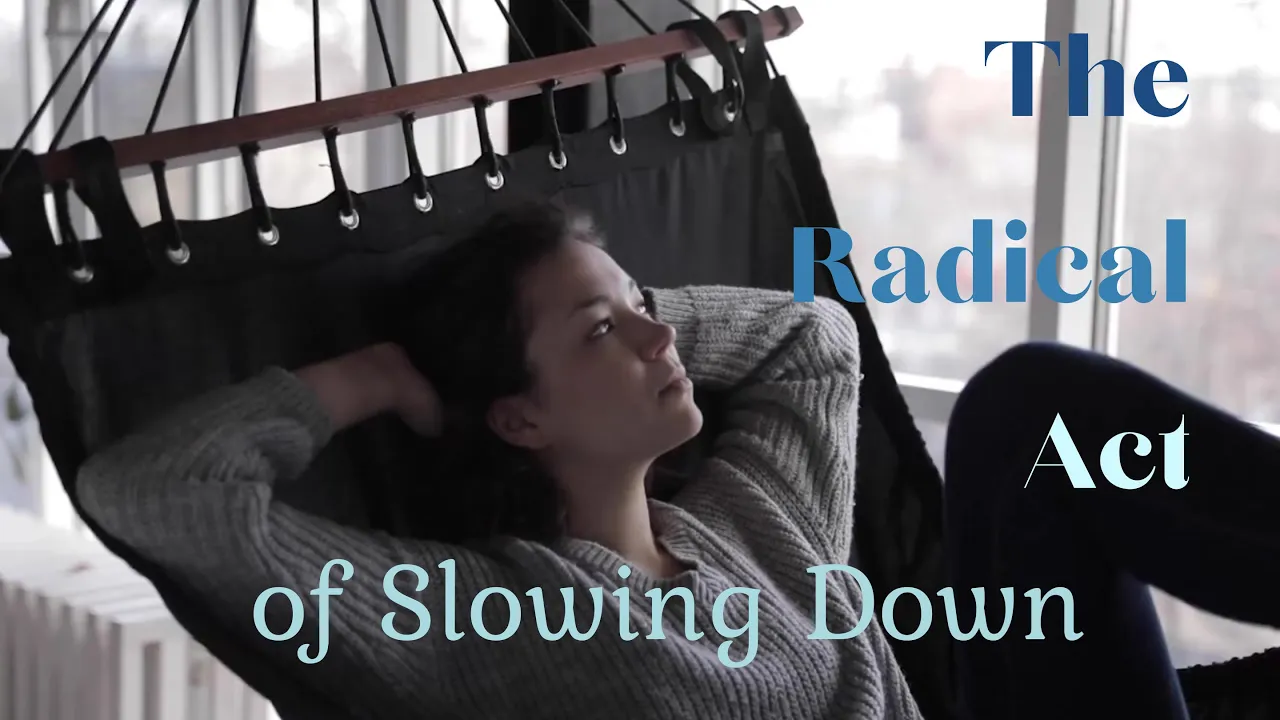Intro
Today we live in a world, or rather a society of achievement. A great deal of daily routines can be quantified, collected and compared with yesterday or with someone else using the same app. The celebration of haste, productivity and constant activity has resulted in ordinary rest being regarded as laziness. A simple nap has been reduced to a so-called ‘‘power nap’’, which should not last longer than those specified 30 minutes. It should take place under specific conditions and at set times. Then you can tick off the task from your daily list.
What if life is not a project at work, college or school? What if rest is simply rest and not a short break in this crazy cult? What if simply saying ‘’enough’’ of constant optimization is already considered a rebellion and a sign of protest?
The Burnout Society
In The Burnout Society, Korean philosopher Byung-Chul Han outlines that we are our own master and slave. That we are an employer to ourselves, and this is due to the ‘‘achievement subject’’ that we have internalized and treat as our own through external pressures. External repression has become internal coercion. No longer are we merely obeying society, we are leading ourselves down the road to extinction, proudly, willingly, with a smile on our lips on Instagram. As Han writes:
The achievement-subject exploits itself. It is predator and prey at once.
– Byung-Chul Han, The Burnout Society [p.13]
What is the result of all this? A culture in which rest is exhausted, and the more tired someone is, the better they are, because after all, we’d rather be productive than loved.
Time as control
Time is no longer cyclical and reflective. It has become project time. Strictly waterfall, agile, Six Sigma, Lean, or sprint approaches. There is no room for a moment of reflection or things off schedule. Project and time have become strictly results and development oriented. There is no quiet weekend. There is only active outing, catching up after hours, or learning to be a better cog in the machine. There is no boredom, which is forbidden, because there is a ``content’’ for every mood and need.
Rest as resistance
Stopping, but real and even for a short while, is a disruption to the system. This is a bug that should be debugged. As Elliot beautifully put it in Mr. Robot:
Debugging’s actually all about finding the bug, about understanding why the bug was there to begin with, about knowing that its existence was no accident. It came to you to deliver a message.
– Elliot, Mr. Robot [eps1.2_d3bug.mkv]
The very message that can be conveyed by stopping for a moment is rest. A break from constant automation and optimization. To stop filling the hole you’ve been trying to fill for years. Remember that the longer you look into the void, the longer the void looks at you. It emerges from the depths and cries out for your attention, screaming to do something.
The choice of resting to do nothing and just be. As Han puts it, to be more of a human being, not just a human doing. It allows us to regain control of our time, not to rest and return to the direction, but simply to exist. To refuse the constant colonization of our attentions through advertisements, reels or other pop-ups.
Outro
Maybe the best thing you can surprisingly do is do less? Not because you’re lazy, but just because you can. Like I said, life is not a project. Sometimes all you need is a moment, and that moment is best left to just ‘‘being’’.
When was the last time you did nothing and felt no guilt about it?
Bibliography
These particular books affected the overall shape of the article
- Byung-Chul Han - The Burnout Society
This is the foundational text for the essay’s entire argument. Han provides the critical diagnosis of the “achievement-subject” who willingly self-exploits, turning rest into a problem to be optimized rather than a natural state. It explains the psychological shift from an external, disciplinary society to an internal, performance-obsessed one.
Buy on Bookshop.org from my affiliate link - Jenny Odell - How to Do Nothing: Resisting the Attention Economy
Odell’s book is the practical and philosophical answer to the problem Han diagnoses. It argues that “doing nothing” or rather, redirecting our attention away from the capitalist logic of productivity is a radical political act. It provides a powerful framework for understanding rest not as laziness, but as a necessary form of resistance against a system designed to monetize our every waking moment.
Buy on Bookshop.org from my affiliate link
